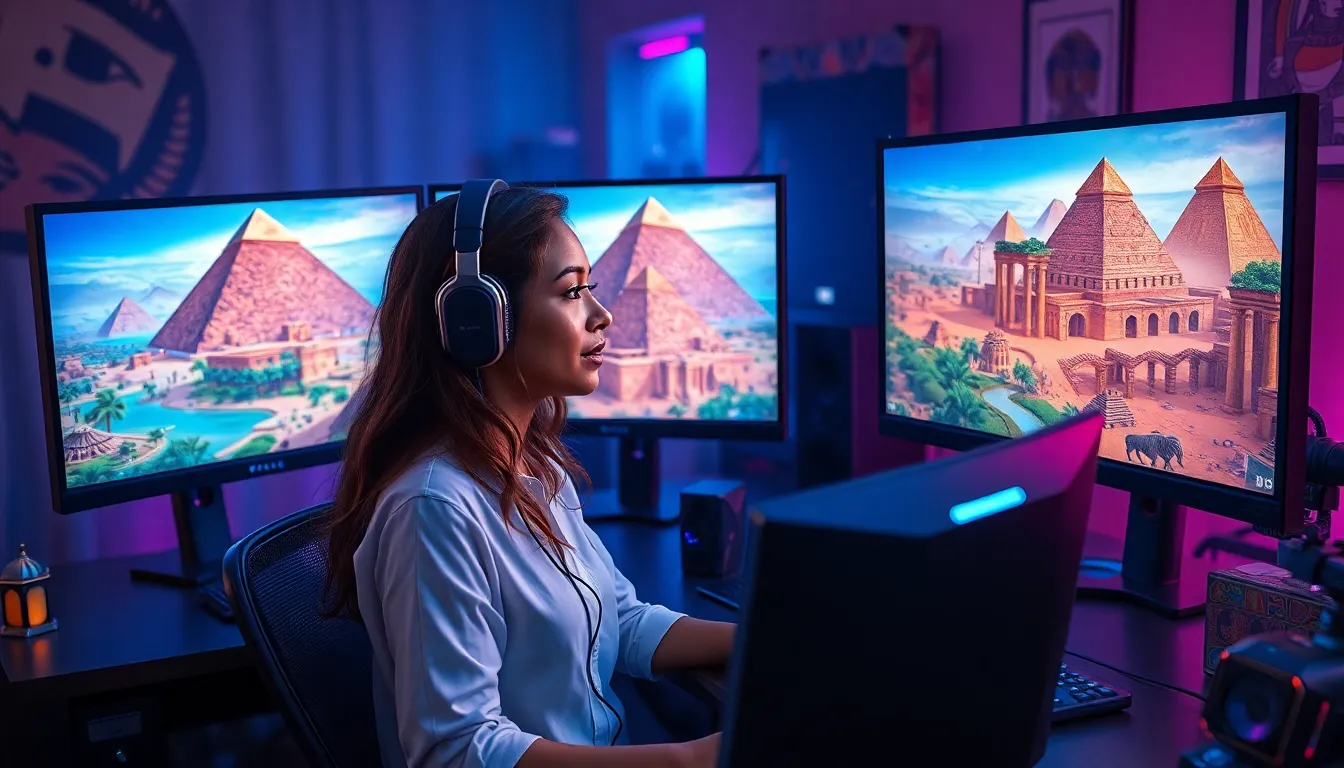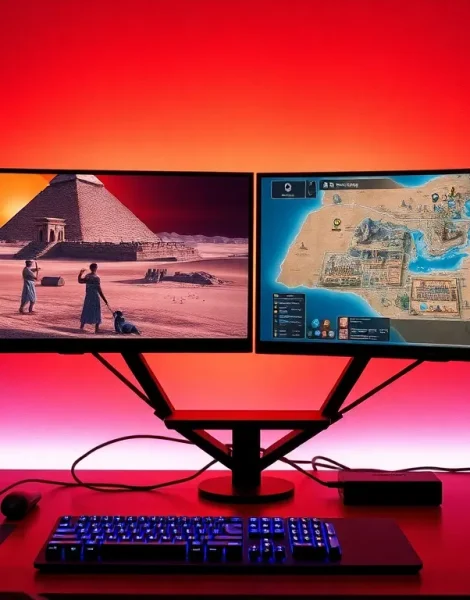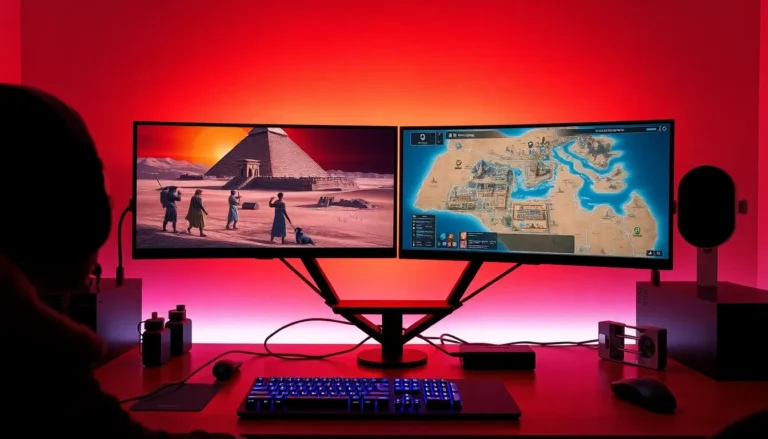Step into the sands of time, where pharaohs ruled and pyramids pierced the skies. Ancient Egypt, fascinating and rich in lore, has captured the hearts (and thumbs) of gamers worldwide. Why settle for a mundane life when you can embark on epic quests through time, uncovering secrets hidden beneath the sands? With everything from grand architectural wonders to intricate stories of gods and mortals, this vibrant civilization offers endless inspiration for gaming adventures. Fasten your sandals and grab your controller: a journey into ancient Egypt awaits.
Table of Contents
ToggleExploring Ancient Egyptian Culture in Gaming

Historical Context and Inspirations
When developers create games set in ancient Egypt, they frequently investigate into the depths of history to bring authenticity to their virtual worlds. Ancient Egypt wasn’t just about pyramids and hieroglyphs: it was a civilization bursting with art, science, and social structure. Games like Assassin’s Creed Origins showcase this beautifully, blending actual historical events with engaging gameplay. Gamers aren’t just jumping between rooftops: they’re exploring a meticulously crafted environment that mirrors the essence of the ancient world.
Pharaohs and Mythology in Game Narratives
In Egyptian mythology, the stories are as rich as the civilization itself. Characters like Osiris, the god of the afterlife, and Anubis, the keeper of the dead, have found their way into narratives, enriching gameplay with ancient mythologies. Titles such as Gods of Egypt leverage these myths to create immersive storytelling that captivates players. The blend of historical figures and mythology not only provides depth to characters but also engages players’ curiosity about the ancient rituals and beliefs that shaped this great civilization.
Landmarks and Architecture: Virtual Reconstructions
Iconic Games Set in Ancient Egypt
Games like Tomb Raider and The Legend of Zelda: Oracle of Seasons depict ancient Egyptian landmarks, from the iconic Great Sphinx to the majestic Nile. These virtual locations spark a sense of wonder in players, transporting them to a time of grandeur. Exploring the ruins and deciphering the significance of each landmark encourages players to explore resources beyond the game itself, fueling an interest in real-world Egyptology.
Immortality Mechanics: Tomb Raiders and Beyond
The mechanics of immortality in these games, often represented by health potions or resurrection spells, serve to heighten the suspense as players traverse treacherous tombs. Tomb Raider particularly emphasizes this, encouraging users to confront dangers that echo historical challenges faced by treasure seekers. The tension of unveiling said tombs while staring death in the face offers a thrilling experience, blending gameplay with echoes of ancient perilous adventures.
Modern Titles and Updates in Egyptology
Community Engagement and Content Creation
Modern titles are not merely standalone experiences but are enriched through community involvement. Gamers often share insights and discoveries about ancient Egypt, whether through forums or social media. This interaction can lead to fan creations that explore Egyptian themes or game mechanics. For example, modders might add new quests or characters based on Egyptian mythology, creating an even deeper connection to the culture. Developers who embrace this engagement deepen the immersion of the gaming experience.
Fan Theories and Modding Ancient Egypt
The rise of fan theories around games set in ancient Egypt adds another layer of intrigue. Players investigate into speculation about hidden meanings, character motivations, and possible sequels, often while discussing these theories in vibrant online communities. Modders also contribute significantly, enhancing games with downloadable content that expands the initial narrative, connecting real-world history with interactive gameplay.
Lessons From Ancient Egypt: Game Design Perspectives
The Role of Storytelling and World-Building
The ancient Egyptians are experts in storytelling, as seen in their elaborate hieroglyphs and mythological tales. Games that draw from this tradition often feature intricate narratives that transport players to the heart of Egyptian life. Effective game design must consider how to present history authentically while also weaving engaging stories that resonate emotionally with players. Balancing factual accuracy with creative liberties enriches both experience and education.
Combining History with Fantasy Elements
Developers often blend historical authenticity with fantastical elements to create unique gaming experiences. By placing historical figures alongside mythical creatures, such as sphinx-like beings, developers enrich their stories while keeping players engaged. This blend of reality and fantasy not only makes gameplay more exciting but also encourages players to investigate the true stories behind the legends.









